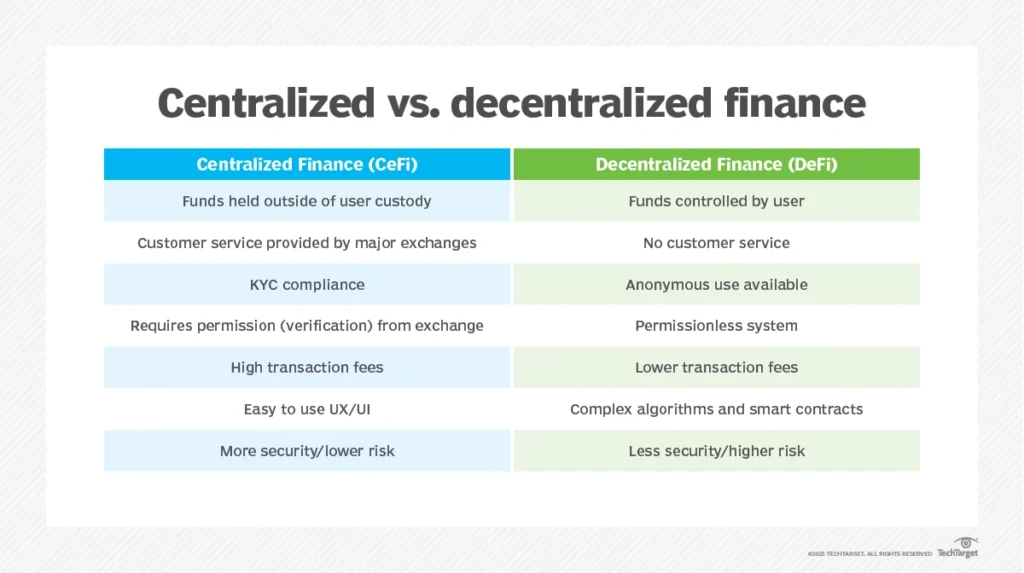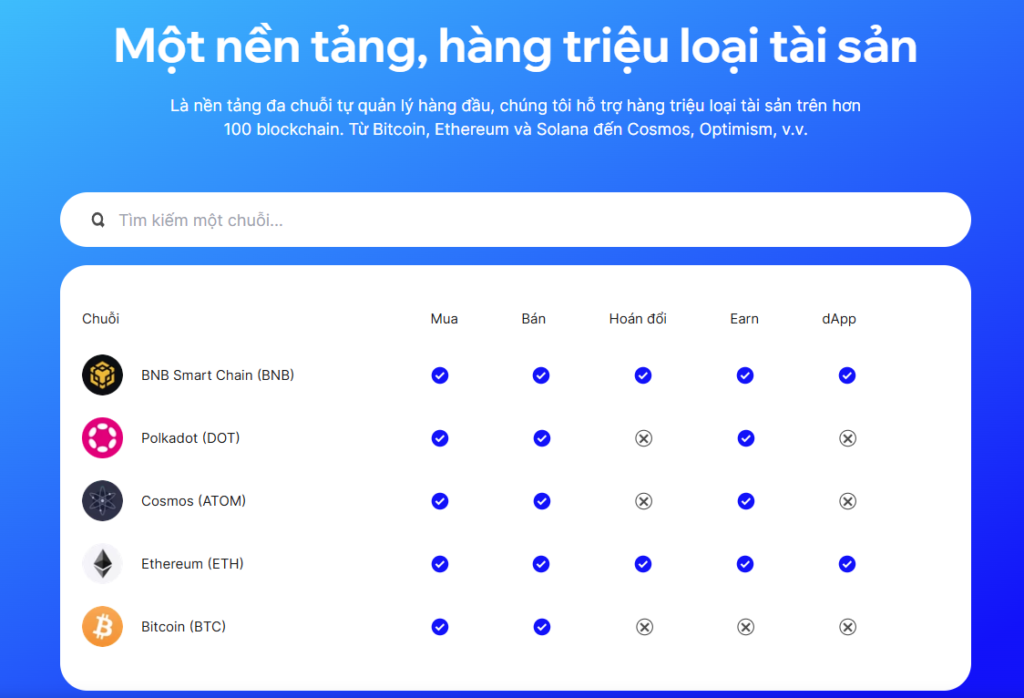For many beginner forex brokers, decentralized finance (DeFi) feels distant, complex, or too fast-moving to catch up with. In Vietnam, DeFi is not just a trend—it’s becoming part of everyday financial experiments, especially among younger, tech-savvy users. But unlike the structured world of trusted forex, where brokers provide systems and support, DeFi is entirely self-managed. This shift from broker-guided to self-directed finance can be both fascinating and intimidating.
This guide is written for beginner forex brokers who want to step into the DeFi space without getting overwhelmed. It’s not about becoming an expert overnight—it’s about taking small, manageable steps to understand how DeFi works in Vietnam and how to get started safely.
Understanding the Difference: Forex Brokers vs. DeFi Platforms

Credit from TechTarget
Forex trading with a trusted forex broker typically happens on regulated platforms, with trading tools and customer protections. DeFi, by comparison, is fully decentralized. Instead of going through a broker, trades happen directly on blockchain-based platforms using smart contracts. These are automated systems that execute trades without human involvement. In DeFi, there is no one to call if you make a mistake. You control your assets, approve your transactions, and handle your risks.
For many Vietnamese users, this independence is attractive. It gives a sense of freedom that forex brokers cannot offer. However, it also requires personal responsibility from the start.
Getting Started: Your First Wallet

Credit from trustwallet.com
In DeFi, your wallet is everything. It’s the gateway to all decentralized apps. Setting up a crypto wallet like MetaMask or Trust Wallet is simple, but the responsibility it carries is far greater than opening an account with a trusted forex broker. When creating a wallet, you will receive a recovery phrase. This phrase must be written down and stored safely. Unlike forex platforms where password resets can be requested, losing your wallet recovery phrase in DeFi often means permanent loss of access to your assets.
It’s important to get comfortable using your wallet before making transactions. Even connecting a wallet to a DeFi platform is an active decision each time—it’s not like logging into a forex app where your profile is already secured by the broker.
Exploring DeFi Apps in Vietnam
Once your wallet is ready, you can begin to explore DeFi platforms. In Vietnam, PancakeSwap and KyberSwap are among the most widely used decentralized exchanges. These apps are accessed through your wallet’s browser or by connecting through desktop browsers with wallet extensions. There’s no account to create and no broker. You connect, select the tokens you want to trade, approve the transaction, and the system handles it on-chain.
For a beginner forex broker used to trusted forex platforms, this independence may feel unusual. There’s no middleman calculating your spreads or charging commissions. Instead, you pay a network fee (often called a gas fee) for each transaction, which can vary depending on the blockchain you use.
Trading and Staying Safe

Credit from Planergy
One of the biggest adjustments when moving from forex to DeFi is trading without support. Forex brokers often provide educational resources, live chat, and regulated environments that make starting easier. In DeFi, you are responsible for checking whether a token is legitimate or if a smart contract is safe to use.
Start with small trades. It’s wise to use well-known assets like stablecoins—digital currencies pegged to the US dollar—so you can avoid large price swings while learning the system. Always verify token addresses from official sources and be cautious of unknown platforms promising unrealistic rewards. In the trusted forex world, brokers are required to disclose risks. In DeFi, risk management is entirely in your hands.
The Role of Community and Local Trends
Vietnam’s DeFi community is active and growing quickly. Many users join Telegram groups, Facebook communities, and local crypto events to share experiences and stay updated. Regulations are still developing, and DeFi projects can appear and disappear rapidly. As a beginner forex broker entering this space, staying connected to local news and community conversations can help you avoid unreliable platforms.
Unlike the structured nature of trusted forex, where brokers and regulators provide protections, the DeFi space in Vietnam is fluid and fast-changing. Some apps may offer opportunities, while others may close without warning.
Conclusion: A Simple Path for Beginner Forex Brokers
Becoming part of Vietnam’s DeFi movement doesn’t require mastering every detail from day one. As a beginner forex broker, you can start by learning to handle your wallet, understanding basic DeFi platforms, and making small, low-risk trades to build confidence.
The key difference is the level of independence. In the trusted forex world, brokers guide you through the process. In DeFi, you are fully in charge. This can be both empowering and risky.
If you approach DeFi carefully—taking small steps, verifying sources, and staying connected to the local crypto community—you can gradually explore this new financial landscape. There’s no rush. The beauty of DeFi is that it’s open, accessible, and ready when you are.



